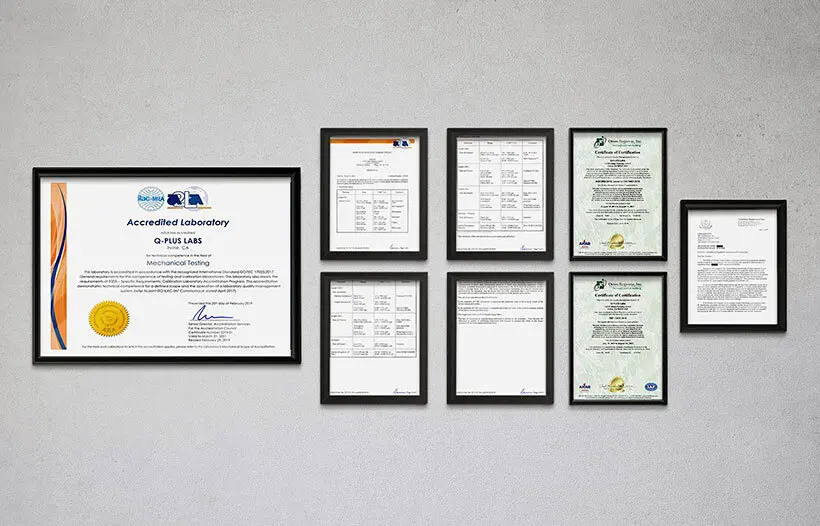Why use an ISO 17025 Accredited Dimensional Measurement & Inspection Laboratory?

Many clients want to know the differences between an accredited lab and one that is not, and why they should consider an ISO 17025 accredited dimensional measurement and inspection laboratory in the first place. This is a very important and valid question. In the simplest of terms, the answer would be “accountability”. There is a big difference between “self-certifying” compliance to ISO 17025 versus actually obtaining a valid, reputable accreditation that meets ISO 17025 requirements; especially from a highly regarded accreditation body like A2LA. Furthermore, the expansive gap between an accredited lab and a lab with no credentials, or just ISO 9001 certification, can be as vast as the differences between a college degree from an Ivy League school versus one from a “diploma mill”.
ISO 17025 accreditation represents the highest level of excellence a laboratory can maintain for certification, making it the industry’s “gold standard” for competence among testing & calibration laboratories. Accredited labs undergo inspections by accredited bodies every 2 years. IIA consistently maintains ISO 17025 accreditation, as well as ISO 9001 registration. This demonstrates that IIA is a technically competent laboratory with a complete, comprehensive set of verified systems and protocols to ensure quality is the top priority while consistently producing valid, reliable results.
Laboratories that are ISO 17025-certified demonstrate that they can operate competently, generating valid and trusted results. By being ISO 17025 accredited, IIA's clients can rest assured that work will be performed to the highest standards possible with appropriate and validated test methods. ISO 17025 also wholly envelopes the ISO 9001 standard for quality management, of which IIA also diligently maintains registration.
Verified, Reliable Results
Another aspect that separates ISO 17025 accreditation from all other “quality system-only” standards such as ISO 9001 is the Scope of Accreditation (ours can be found here). Accredited labs must only use equipment that is certified to ISO 17025 when selecting different instruments or equipment for various types of measurements, as the measurement uncertainty has been calculated and verified by the assessor of accreditation. Work must be completed by trained qualified staff utilizing accurate recording and reporting procedures that are then audited by independent QA personnel.
ISO 17025 accredited labs are also required to do round-robin testing with commercially available proficiency test artifacts supplied only by accredited test providers. Further, our traceability requirement is not just to NIST (National Institute of Standards and Technology) but also via a chain of accredited calibration laboratories, ensuring all measurements are performed using equipment that was calibrated by accredited calibration service providers.
Additional Benefits
Additional benefits of using an ISO 17025-certified lab are options. Maybe the project specifications require utilizing an accredited laboratory, while not requiring the inspection/measurement to be performed on verified equipment with certified calibration. This can be a huge benefit to businesses seeking an accredited laboratory without the increased cost of accredited documentation throughout the testing process. This can also speed up the process as they won’t be waiting “in the queue” for specific certified equipment that is required for fully accredited testing. Allowing them to meet the mandatory scope of the project while keeping costs down. Applying this method is especially beneficial to businesses with the continuous need for inspection/measurement during the quality process across multiple projects.
Our ISO 17025 accreditation though A2LA, (roundly agreed to be one of the strictest and most reputable of the few true accreditation bodies) is both nationally and globally recognized via ILAC MRA (Mutual Recognition Agreements) between countries. This means data provided by such an ISO 17025 accredited laboratory is recognized worldwide.
For more information on ISO 17025 accreditation and A2LA, one of the top accreditation bodies in the USA, visit A2LA.org:
https://www.a2la.org/about



